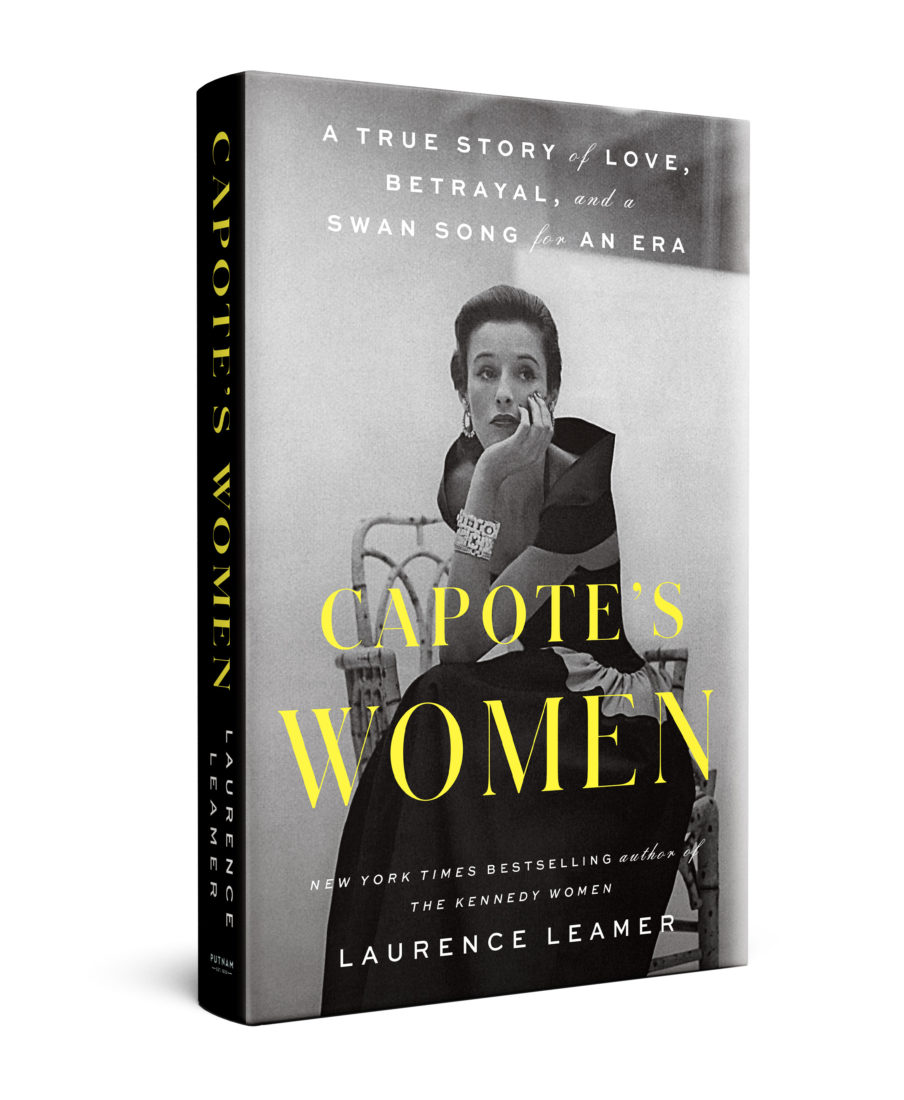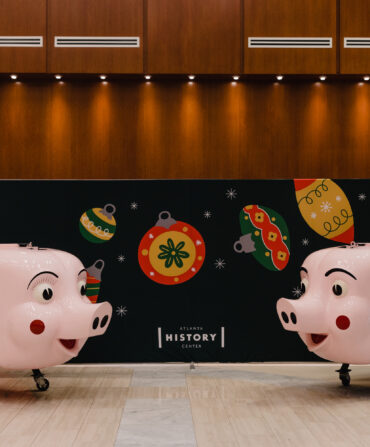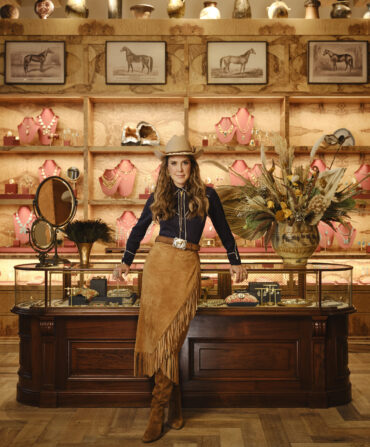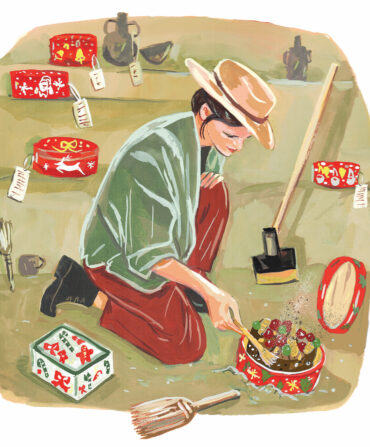Nabokov had his butterflies, and Flannery O’Connor her peacocks. But Truman Capote had his swans.
Swans was the term Capote (1924–1984), the author of In Cold Blood and Breakfast at Tiffany’s, coined for the circle of glamorous female friends he cultivated in the 1950s and ’60s. The term more or less fit: The half dozen or so women were devastatingly gorgeous and socially graceful and, considering their high-flown marriages, tended, like swans, toward elaborate mating rituals. One was Babe Paley, the superchic wife of a CBS founder whom the fashion press regularly deemed the world’s most beautiful woman. Nancy “Slim” Keith was another: a golden-haired California model who was romanced by Clark Gable, hunted pheasant with Ernest Hemingway, and married the film director Howard Hawks. Other swans included Lee Radziwill, the younger sister of Jackie Kennedy Onassis, and Marella Agnelli, an Italian aristocrat whose marriage to the heir of the Fiat empire made her the sleek embodiment of the jet set. It was as though he’d assembled a cast for The Real Housewives of Saint-Tropez.
Capote’s role as their curator, confidant, and, disastrously, their chronicler is the subject of Laurence Leamer’s Capote’s Women: A True Story of Love, Betrayal, and a Swan Song for an Era, a dishy, gossipy delight. Leamer has written previously about the Kennedy women and Palm Beach society; he’s attuned to what happens between D. Porthault sheets. Capote chose his swans, Leamer writes, “as if collecting exquisite paintings that he wanted to hang in his home for the rest of his life.” The allure wasn’t sexual—Capote was loudly and proudly out, a flamboyant trailblazer during a time when many states still outlawed homosexuality. And while the son of Lillie Mae Faulk of Monroeville, Alabama, had always been beguiled by the trappings of wealth, his attraction to the swans wasn’t entirely about their money. If expenditure were all, he wrote, “a sizable population of sparrows would swiftly be swans.”
No, what drew Capote to his swans was their peculiar combination of beauty, elegance, social cachet, cunning, wit, and storytelling ability. He saw their lives as a kind of performance art. With a few exceptions (like Agnelli), the swans did not come from grand money; they married into it, often multiple times.
What drew the swans to Capote, on the other hand, was something different. “When Truman was at the table, he banished dullness from the earth,” Leamer writes. Capote’s puckish wit turbocharged their dinner parties, he recommended books to them, he slyly lampooned their husbands, and he counseled his swans through their myriad affairs and divorces and remarriages. (So many affairs freckle these pages that, after a while, a sentence such as “She died in an automobile accident next to her trouser-less chauffeur” fails to so much as raise an eyebrow.) For roughly twenty years, Leamer writes, “Truman sailed on their yachts, flew on their planes, stayed at their estates, supped at their tables, and heard their most intimate tales.”
Oh, those intimate tales. They’re what poisoned it all. “If a writer has to rob his mother,” William Faulkner once said, “he will not hesitate; the ‘Ode on a Grecian Urn’ is worth any number of old ladies.” Capote took this dictum to heart. Answered Prayers, the novel-to-be he announced in 1958, was to be his magnum opus: a sweeping, Proustian examination of wealth and privilege based on the swan existence he’d spent decades observing. Not until 1975, however, did a word of it emerge, when Esquire ran two excerpts, including one entitled “La Côte Basque, 1965.”
That Capote broke the women’s confidences was just one violation. His portrayal of the swans was pissy and cruel; the critic James Wolcott rightly called the excerpt an “abattoir of hatefulness.” And that was it. Nearly all of the swans shunned him from then on, and it’s no stretch to connect Capote’s social suicide with the spiral of alcohol and drug abuse that led to his death at the age of fifty-nine, with Answered Prayers unfinished. Leamer tracks Capote’s rise and fall with juicy detail, but like everyone else, he’s unable to wholly explain that final betrayal. “What did they expect? I’m a writer, and I use everything,” Capote later said, in his defense. “Did all those people think I was there just to entertain them?”









